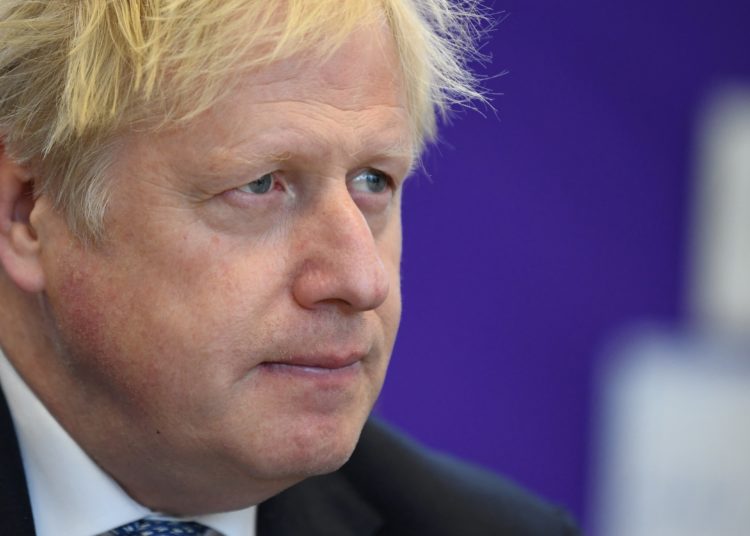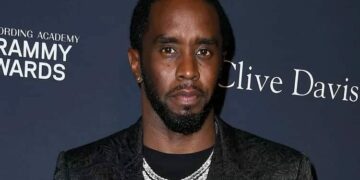Russian politicians lined up to celebrate what they considered as downfall of the UK prime minister, Boris Johnson, casting the British leader as a “stupid clown” who had finally got his just reward for arming Ukraine against Russia.
Johnson, the face of the 2016 Brexit campaign who won a resounding electoral victory in 2019, announced on Thursday that he was resigning after he was abandoned by ministers and many of his Conservative party lawmakers over a series of scandals.
The Kremlin said it didn’t like Johnson, either.
“He doesn’t like us, we don’t like him either,” Kremlin spokesman Dmitry Peskov said shortly before Johnson announced his resignation outside Downing Street.
Russians were brutal in their assessment of Johnson, who recently told colleagues that he wanted to stay in power longer than Margaret Thatcher – a steady foe of the former Soviet Union who served as British prime minister from 1979 to 1990.
Russian tycoon Oleg Deripaska said on Telegram that it was an “inglorious end” for a “stupid clown” whose conscience would be blighted by “tens of thousands of lives in this senseless conflict in Ukraine”.
“The clown is going,” said Vyacheslav Volodin, the speaker of Russia’s lower house of parliament.
“He is one of the main ideologues of the war against Russia until the last Ukrainian. European leaders should think about where such a policy leads,” Volodin said.
Maria Zakharova, the top spokeswoman in Russia’s foreign ministry, said Johnson’s fall was a symptom of the decline of the West, which she said was riven by political, ideological and economic crisis.
“The moral of the story is: do not seek to destroy Russia,” Zakharova said. “Russia cannot be destroyed. You can break your teeth on it – and then choke on them.”
In his speech announcing he was stepping down as Conservative Party leader but planned to stay on as prime minister until a replacement is picked, Johnson addressed the people of Ukraine, pledging that Britain would “continue to back your fight for freedom for as long as it takes”.
Even before Russian President Vladimir Putin ordered the February 24 invasion of Ukraine, Johnson had repeatedly criticised Putin – casting him as a ruthless and possibly irrational Kremlin chief who was threatening the world with his crazy ambitions.
After the invasion, Johnson made Britain one of the biggest Western supporters of Ukraine, sending weapons, slapping some of the most severe sanctions in modern history on Russia and urging Ukraine to defeat Russia’s vast armed forces.
He has twice travelled to Kyiv to meet Ukrainian President Volodymyr Zelenskyy.
Johnson’s support of Ukraine has been so staunch that he has been affectionately known as “Borys Johnsoniuk” by some in Kyiv. He sometimes ended his speeches with “Slava Ukraini” – or “glory to Ukraine”.
While Johnson’s political problems mounted in Britain, they were largely unknown in Ukraine.
“The scandal was relatively unnoticed in the Ukrainian media strictly because of Boris Johnson’s popularity that he gained because of his position on Ukraine,” Igar Tyshkevich, a Kyiv-based political analyst, told Al Jazeera.
Tyshkevich said Ukrainians favoured Johnson “because of his visits to Ukraine, [and] because he was one of the first European heavyweights to come to Ukraine during the war.
“The negative there is on him in the UK, simply doesn’t reach here. Relatively speaking, a translated story [about the scandals] simply won’t find its reader,” Tyshkevich said.
Johnson even spoke stilted Russian in February, telling the Russian people that he did not believe the “needless and bloody” war was in their name.
Russia repeatedly dismissed him as a poorly prepared jester trying to punch far beyond Britain’s true weight in the world.
Zakharova, the foreign ministry spokeswoman, gleefully portrayed Johnson as the author of his own downfall.
“Boris Johnson was hit by a boomerang launched by himself,” she said. “His comrades-in-arms turned him in.”





